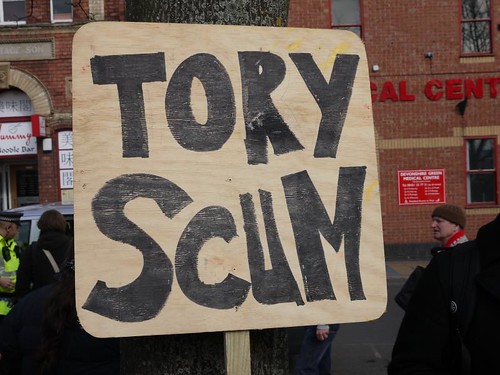 If someone calls someone out on their privilege, it is time to listen. The very nature of privilege is that we are mostly unaware of the privilege we hold, in the areas we hold it in. So if a black person tells you, a white person, that you have been racist, it is almost certainly them, not you, who is right.
If someone calls someone out on their privilege, it is time to listen. The very nature of privilege is that we are mostly unaware of the privilege we hold, in the areas we hold it in. So if a black person tells you, a white person, that you have been racist, it is almost certainly them, not you, who is right.
If you are told that language you just used, or attitudes you just showed, are oppressive, then take note. While your initial reaction may be to explain yourself, justify what you did, or dismiss the criticism, this is silencing and derailing. It is because we have privilege that we have been able to get through life without realising how hurtful or divisive it can be to say or do certain things, so just because someone's challenge may not make immediate sense to us, does not mean it is untrue.
We must always respect the lived experience of those we have privilege over, and take note when they take the time to tell us about it. So if a black woman challenges something racist said by a white woman, or a disabled woman challenges a disablist attitude, or a working class woman challenges middle class privilege, it is time to listen. Don't argue! If a bisexual woman tells a straight woman that she has shown her privilege, then the straight woman must listen. Take it in. Respect the experience of the other woman.
- This applies if:
- a trans woman calls out cis privilege
- a disabled woman calls out disablist privilege
- a woman calls out male privilege
- a black woman calls out race privilege
- a working class woman calls out class privilege
- a genderqueer person calls out cis privilege
- a fat woman calls out thin privilege
- a lesbian, bisexual or pansexual woman calls out straight privilege
- an older woman calls out ageism
- a woman of colour calls out white privilege
- a woman calls out slut shaming
- many, many other variations
- Things NOT to do if someone calls you out on your privilege:
- Don't kick out. Be glad someone told you, and learn from the experience.
- Don't try to justify what you did. We all know 'splaining when we see it, and this is what you would be doing.
- Don't ever say, "But my gay / trans / disabled friend isn't offended when...". It's the same thing as "But some of my closest friends are black!". Members of oppressed groups are not homogeneous entities who think, feel and react in the same ways. And maybe your friend hates you doing it too.
- Don't repeatedly apologise. Say sorry once, and learn.
- Don't hate yourself. The way privilege works is that those of us who hold it don't always see that. Take responsibility for what you do next, don't endlessly beat yourself up for mistakes already made.
- Don't demand to be educated by the person who challenged you. It is your responsibility, not theirs.
Being white, non-disabled, cis etc. does not mean that you have a perfect life. Most people have privilege in some areas of their life while experience oppression in others. Use the issues you know about (being a lesbian, for instance) to inform the more privileged parts of your life (being white, for instance). Relate the one oppression to other oppressions outside of yourself.
It's pretty unpleasant to be told you have just been anti-Semitic, or heterosexist, but it's even more unpleasant to be on the receiving end of prejudice. Be glad someone told you, and use the experience to make sure you never do it again.
[The image is s black and white photograph made up of lots of small square photographs of the faces of a diverse range of people. It is adapted from an image by Colemama, and is used under a Creative Commons License]


















